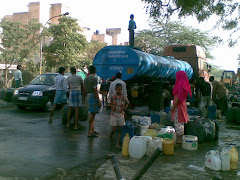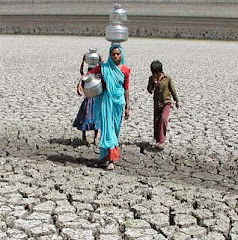Global human rights group Amnesty International has accused London-based metals and mining group Vedanta for alleged poor waste management practices at its aluminium refinery in India's eastern state of Orissa, which has hit the supply of water locally.
Amnesty has said the refinery is causing water and air pollution that is threatening health of thousands of locals in the state. However, Vedanta has refuted the claim and said they were based on an "outdated document".
The international rights group on February 10 released a report, alleging that the 8,000 strong tribal community near the refinery suffered violations of human rights to water and health. The report, which quoted documents from Orissa State Pollution Control Board gave instances where vedanta failed to put in place adequate pollution controls.
This resulted in leakages of alkaline wastewater into the river, the main source of water in the area. People in Niyamgiri Hills, where the company mines alumina, had complained of serious skin ailments, hazards that were not witnessed before the mining began, said Amnesty.
According to Amnesty, these complaints are likely rooted in the periodic contamination of Vansadhara river, the main water source for the people and possible seapage of toxic elements into ground water from a highly alkaline waste known as red mud pond.
The Amnesty-Vadanta stand-off comes soon after an Indian Government report has called for an urgent upgrade of the country's wastewater treatment facilities, stating that most of the Indian cities have been managing to treat their wastewater only partially and the untreated waste is flowing back into rivers that form major sources of drinking water.
The discharge of untreated sewage into water courses is the biggest source of water pollution in India, the report released last month by state-run Central Pollution Control Board (CPCB) had said.
Vedanta has charted plans to pour more investment in the refinery and expand its capacity six-fold. The expansion is expected to deliver significant economic stimulus to the local community, especially historically underdeveloped areas of Orissa, the company said.
Amnesty has reportedly urged the Indian government not to approve the expansion until pollution laws were enforced, the health impact investigated and the waste management process rectified by the refinery.
Vedanta, on the other hand, said the criticism of the project is misplaced and repeated offers made by the company to Amnesty to enter into a dialogue on the report had been rejected.
Subscribe to:
Post Comments (Atom)

.jpg)



No comments:
Post a Comment